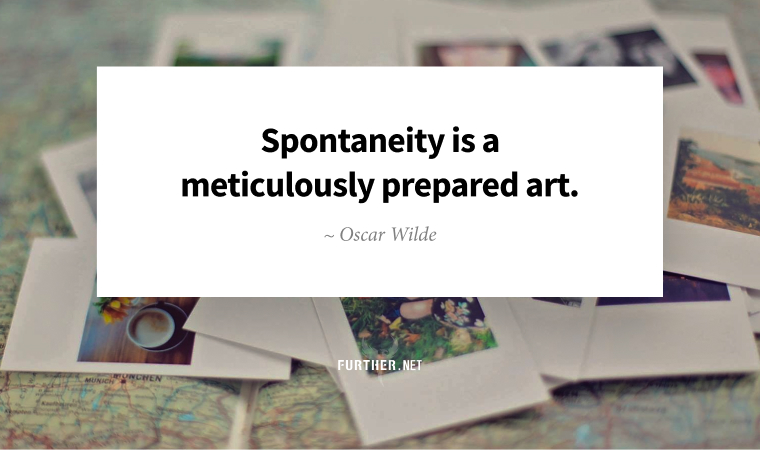
Recently I did something thrilling that upended my routine and juiced creativity: I spontaneously agreed to take my cousin’s spot on a family vacation a couple of weeks before the trip commenced. Most enticing (and terrifying) was that part of the trip would be off-the-grid.
In our age of 24/7 connectedness and pandemic-related restrictions, I was doing something essential: opening up to the unknown. Research shows that habitually pursuing novelty makes us happier, cognitively sharper, and more motivated. And all of this supports greater longevity and improved healthspan.
All you have to do is get better at planning for spontaneity. Now that, Alanis, is actually ironic.
Spontaneous Expression
The art of being spontaneous comes easier to some — a preference for routine vs. spontaneity is part of our temperament. While reliable habits and routines help keep us on track, insisting on planning every little thing can stifle creativity, mental flexibility, and resilience.
Luckily, spontaneity comes naturally and is a rational action. As clinical psychologist Linda Blair explains, it’s different than a willy-nilly impulse.
There’s no thought process whatsoever in impulsivity. But spontaneous people, by staying connected with your gut, you’re responding to your emotions, you’re doing a logical process, which takes longer, but your emotions say, “This is fun, this looks different, I’ll do it.”
And that’s the key word: fun. By bringing a sense of adventure and playfulness into your life, you create a fertile space for serendipity to occur. This empowers you to use the unknown as an antidote to the stress-inducing overscheduling that has overtaken our lives.
Impromptu You
This begs the question; how do you loosen your attachment to predictability? It’s not so simple, given our COVID-induced conditioning to ensure every social interaction outside our homes and pods was meticulously planned for our health and safety.
One surefire way to ease our fear-based response and open up to spur-of-the-moment choices is mindfulness. With a more conscious thought process, you can logically assess the pros and cons and take on the calculated risk of spontaneity.
And speaking of mindfulness, mind your reminders. Get in the habit of switching your phone to “do not disturb” or leave it home, so it stops dictating and guiding your every move.
Finally, try scheduling unscheduled time. A friend recently showed me his calendar where he had big chunks blocked off weekends and evenings. “That’s my ‘me time,’ no plans allowed,” he explained. “Not to be antisocial, but if I didn’t write down my downtime, I wouldn’t have a minute to breathe.”
And that’s the truth about spontaneity. If you want to experience leisure, delight, and adventure, you’ve got to plan for life to go unaccording to plan.
